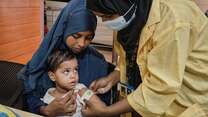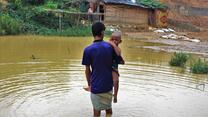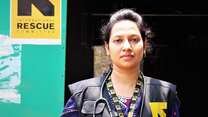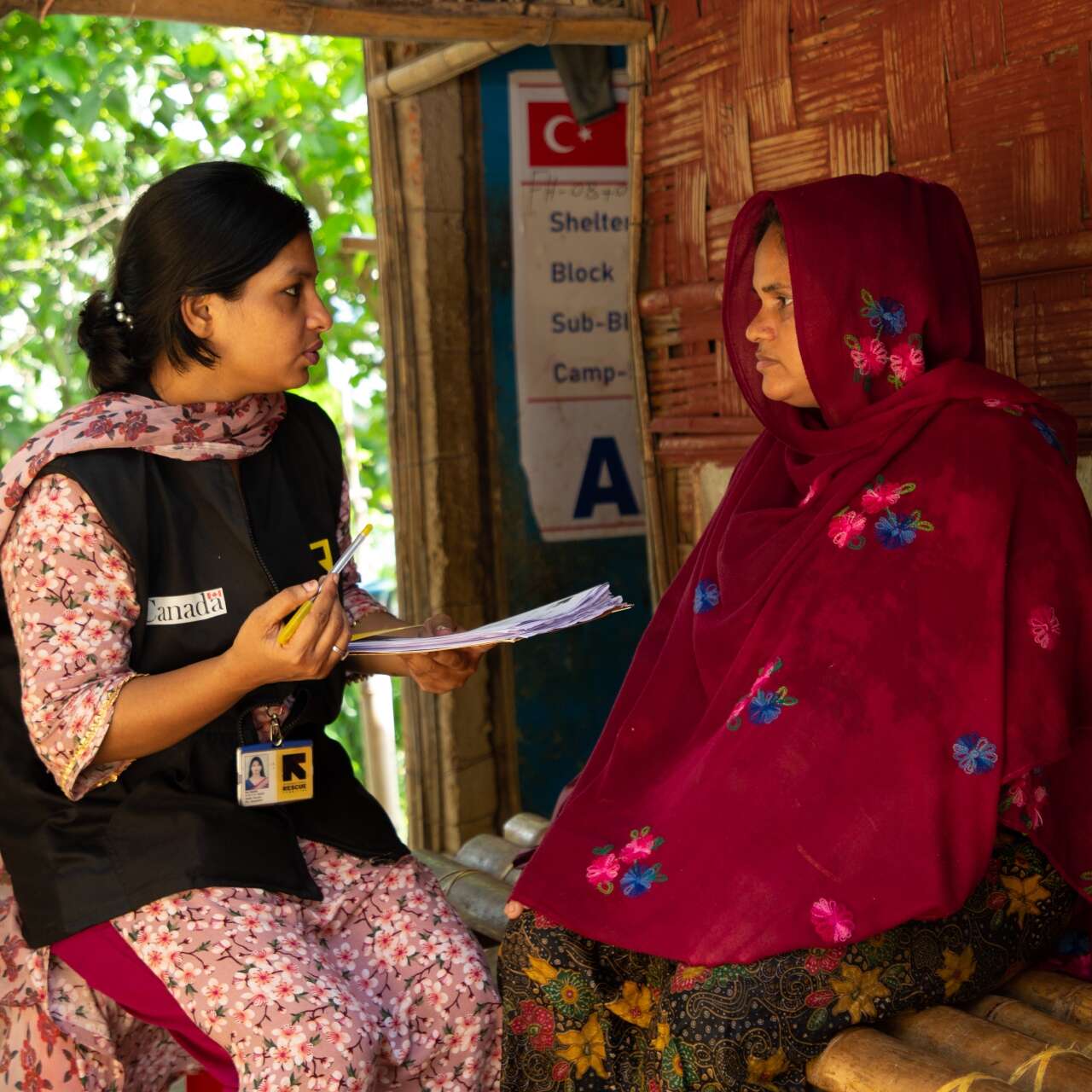
Widespread, violent protests have led to the ousting of Bangladesh’s Prime Minister and tragically claimed the lives of over 600 people. The International Rescue Committee (IRC) has been compelled to suspend several of its essential programs in the nation due to safety concerns and the shutdown of communications networks.
Amidst the crisis, Rohingya refugees—especially women and children—face heightened vulnerabilities and safety concerns. Meanwhile, extreme flooding has impacted 5.5 million people, destroying critical infrastructure and exacerbating humanitarian needs.
Learn more about the crisis in Bangladesh and what you can do to help.
What is happening in Bangladesh?
Violent protests have erupted in Bangladesh following the reinstatement of a quota system for civil service roles. Protestors are calling for electoral reform and justice for victims of the unrest. The relentless demonstrations compelled Prime Minister Sheikh Hasina to leave her post and flee the country. The President is forming an interim government, and the European Union has called for an orderly transition to democracy.
Authorities resorted to extreme measures, including blocking communication services, enforcing curfews with shoot-on-sight orders and confronting protesters with arms.
More than 600 people have died, over 450,000 have been arrested–but declared free of charges by Bangladesh’s interim government—and several thousands of others have been injured. Due to a lack of internet connectivity and information, it is likely that the actual figures are higher than those reported.
Reports indicate extensive looting and arson incidents have occurred at the Prime Minister's residence and office, along with various government and private establishments.
Children, women and Rohingya refugees are among those most impacted by escalating insecurity in Bangladesh. The continuous mass protests exacerbate the humanitarian needs of refugees affected by climate-related shocks, including the extreme flooding that impacted 11 out of 64 Bangladeshi provinces in August 2024.
With tensions high and security uncertain, it is crucial that steps be taken to protect those most at risk during this tumultuous time. The government must prioritize the safety and well-being of children and refugees, providing them with adequate resources and support to weather these challenges.
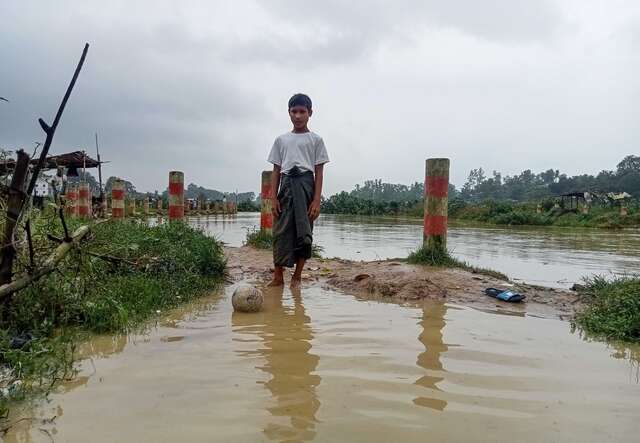
Who is impacted by the crisis in Bangladesh?
Vulnerable populations, such as Rohingya refugees, women and girls, face pronounced safety and security risks. Ongoing unrest and communication disruptions have forced the IRC to suspend most operations in Bangladesh. Due to limited access, the construction of new WASH infrastructure and soap distribution was halted, posing a risk of theft from on-site stocks and warehouses. The IRC expresses serious concerns about the potential decline in service quality and the emergence of new emergencies, such as Acute Watery Diarrhoea (AWD), if national staff remain absent for an extended period.
The IRC is deeply troubled by the adverse effects of ongoing movement restrictions on operational camp presence and service delivery. The absence of authorities hampers staff from working regular hours and exposes them to heightened security risks, with protection services operating only partially. The lack of humanitarian workers and law enforcement has contributed to an increase in day-light shootings, extortion, forced evictions, theft and abductions.
The crisis in Bangladesh is exacerbating conditions for nearly one million Rohingya refugees, some of whom have lived in refugee camps for seven years with little access to education or livelihood opportunities. Recent IRC data indicates that hunger has increased by 60% amongst Rohingya refugees in the last year, coinciding with a 33% decrease in food rations as a result of acute funding shortages.
“For the Rohingya community in Bangladesh, the already catastrophic humanitarian situation demands renewed efforts to bring an end to the violence and to ensure humanitarians can do their jobs,” explains IRC country director for Bangladesh Hasina Rahman.
"Our 24/7 health center in Cox's Bazar refugee camp remains a vital provider of primary and emergency health services. We must be able to continue with our programming for the nearly one million refugees living in Cox’s Bazar."
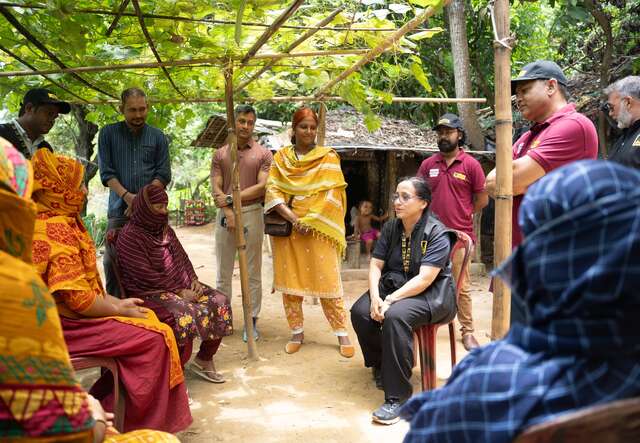
How does the IRC provide support in Bangladesh?
The IRC is continuing to respond to humanitarian needs in Bangladesh through our 24/7 health center in Cox’s Bazar refugee camp.
We are striving to reinstate various programs in Bangladesh, encompassing the provision of reproductive, maternal, and overall health services, child protection, education, Gender-Based Violence prevention and response and Emergency Disaster Risk Reduction services.
Since 2021, the IRC has supported communities in southern Bangladesh in health, protection, education and economic recovery in response to climate change and climate-induced disasters. Our shelter and non-food item distribution programs have been paused due to the protests, leaving over 1,000 temporarily displaced individuals without full assistance as they recover from flooding and storm damage.
In response to extreme flooding in August 2024, the IRC is preparing to scale up its response in coordination with local partners and government to deliver services to impacted, remote areas of Bangladesh. The IRC will deliverbasic survival packages, consisting of items such as drinking water, rehydration sachets, lights and basic food supplies, to around 10,000 households.
In 2023, the IRC reached more than 450,000 clients across Bangladesh, two-thirds of which were Rohingya refugees. Nearly 70% of people reached by the IRC in 2023 were women.
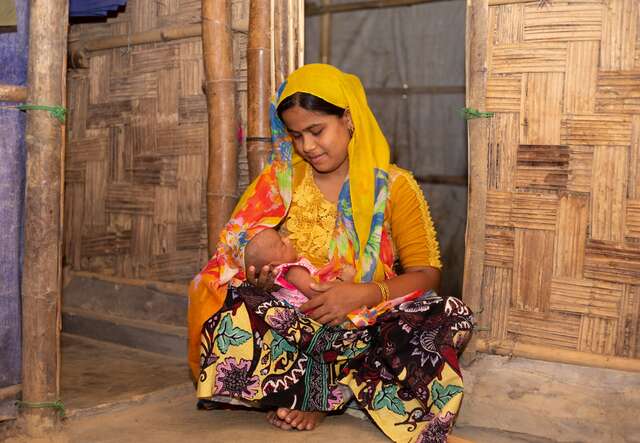
How can I support people in Bangladesh?
The IRC has been responding to humanitarian needs in Bangladesh since 2017. With more than 400 IRC staff operating in 31 Rohingya refugee camps and 27 host community locations, we deliver a range of critical support to people fighting to survive, recover and rebuild their lives across Bangladesh.
